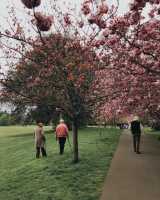
07 Apr How to Decide on the Location of Care for the Elderly
Deciding on where to care for the elderly can be a difficult decision to make and one that families, loved ones, and health workers may struggle with. It is also an important issue for society as a whole as there is an increased strain and costs on local healthcare, pressure on available housing, and later retirement. As a result, a great deal of research has been done to determine where the best place is to care for the elderly. The location of care (LOC) has thus become a pertinent issue that requires further understanding.
People now live healthier for longer
As per the latest figures, by 2050, the world population of those over 60 years of age will double, reaching 22% of the global population. Living longer and living healthier has many advantages for family life, and seniors are now able to do more and live more fulfilled lives. However, there is also the aspect of care and proactive health and planning for the senior years to allow for this improved longevity to lead to improved quality of life.
Planning the best LOC
 In order to determine the best LOC for the elderly, one must have all the health information of the person in consideration. This decision should not be taken lightly, and there should be a planning process that includes the elderly person and their circle of mental, medical, and social support.
In order to determine the best LOC for the elderly, one must have all the health information of the person in consideration. This decision should not be taken lightly, and there should be a planning process that includes the elderly person and their circle of mental, medical, and social support.
With the ability to access and share medical records made much easier, it will be pertinent to have these available before any helpful decisions can be made as to the LOC. Daily health and chronic illness must be detailed and analyzed to form a critical part of the decision-making process.
It has been proven that in-home and in-community care for the elderly is the best solution for a fulfilled, healthier life. Proactive healthcare and ongoing care for even those with chronic illness can be best achieved in their own homes, in homes with family, or in a community of other elderly people, with ongoing support and care available. Lone elderly living has proven to hasten the onset of age-related dementia and increases the chance of severe falls.
There are ways to improve the care; a professional first aid course is a great way to improve the care options of the elderly. A designated person in the home can undertake basic medical and health training to be in a position to offer improved primary care for elderly relatives. Keeping in mind that this is for basic care, and a professional healthcare worker, registered nurse, and GP will still be the go-to for chronic pain management and persistent or serious illness.
Only after assessing all the information at hand and plotting all the eventualities can the location of care be determined in a manner that will serve to both improve the quality of life for the elderly, relieve strain on the local healthcare system and create happier, healthier communities.
The information on MedicalResearch.com is provided for educational purposes only, and is in no way intended to diagnose, cure, or treat any medical or other condition. Always seek the advice of your physician or other qualified health and ask your doctor any questions you may have regarding a medical condition. In addition to all other limitations and disclaimers in this agreement, service provider and its third party providers disclaim any liability or loss in connection with the content provided on this website.
Last Updated on April 7, 2021 by Marie Benz MD FAAD
